ENEMIES OF ROME 1.3 - JUGURTHA - "Rome proves its Metellus"
After two years, Jugurtha has already managed to outsmart and wear down two Roman armies led by two different Roman consuls. The Roman people are however nothing if not stubborn. A third fresh assault is launched, with Quintus Metellus at his head. Will he be able to put down the cunning Numidian?
[Source]
Metellus the Incorruptible.
In 109 BC, the Roman Senate declares null and void the peace treaty made between Aulus Albinus and Jugurtha. The new consul elect, Quintus Metellus, receives the mission to invade Numidia and crush Jugurtha.
According to Sallust, the choice of Metellus was a great one because he was that rare breed of citizen: a Patrician respected by the plebs!
Having at length prepared and arranged every thing according to his wishes, Metellus set out for Numidia, attended with sanguine expectations on the part of his fellow‐citizens, not only because of his other excellent qualities, but especially because his mind was proof against gold.
[Source]
In Africa, Metellus starts by drilling his troops methodically in order to restore the discipline and morale lost under Aulus and Spurius Albinus.
He moved his camp daily, exercising the soldiers by marches across the country; he fortified it with a rampart and a trench, exactly as if the enemy had been at hand; he placed numerous sentinels by night, and went the rounds with his officers.
All the while, Jugurtha tries his usual tactic of offering talks and bribes in order to demoralize and gain times. But Metellus has none of it and, well aware that the Numidian is fickle and full of such tricks, he refuses any offers of truce and when he feels he is ready, he invades Numidia.
Jugurtha watches powerless the Roman army and prefers to retreat and buy its time, waiting to find an opportunity to pound on Metellus. Worse… Metellus loses no time in capturing the city of Vaga and this is from this position of strength that he starts to respond to the overtures of Jugurtha, all the while continuing to rampage through the countryside.
Jugurtha, on comparing the words of Metellus with his actions, perceived that he was assailed with his own artifices; for though peace was offered him in words, a most vigorous war was in reality pursued against him
Map locating Vaga and the river Muthul [Source]
Battle of the river Muthul
Jugurtha, eventually realizing that this time he will have to fight it out to the end, prepares a clever plan to trap the Roman army. When these ones descend from the mountains of Numidian to the plains, it’s to find between them and the river Muthul the whole army of Jugurtha.
The Romans are exhausted after a long march and desperately need the water of the river, but to access it they must cross a plain where they would be easy target for the Numidian cavalry. Metellus knows he has no choice but to break through the trap and sends his own cavalry to take position near the river to establish camp and follows in a close formation. Jugurtha immediately sends troops to close the retreat of the army of the Romans and gives the signal of the attack. The Numidian cavalry pounced on the Roman soldiers and harassed them so exhaustively that they were unable to act in a single coherent and efficient unit.
The whole engagement presented a changeable and indecisive aspect, such as could not but arouse feelings of horror and pity. Separated from their comrades, some retreated, while others pursued the enemy. Without any attempt to keep close to the standards or preserve formation, each man stood his ground where he found himself in danger, and tried to defend himself.
[Source]
In the end, the Romans manage to withstand the incessant attacks. Had Jugurtha faced another commander, less acquainted with discipline and order, maybe the Numidians could have prevailed, but according to Sallust, the day was won by the most courageous:
Metellus could rely on the courage of his soldiers, but the ground was against him. Jugurtha had everything in his favour, except the quality of his troops.
The Numidians are disloged and flee, leaving behind them a badly battered Roman army which will take four days encamped on the edge of the river Muthul before to resume march.
The Siege of Zama
The battle of the river Muthul proved that the Romans were still badly threatened by the numerically superior forces of Jugurtha and his tactical skills. Metellus understood that he stood no chance to defeat Jugurtha on the field and that he was facing the prospect of chasing a ghost and exhaust his men in the process.
Metellus [...] accordingly marched into the richest parts of Numidia, captured and burned many fortresses and towns, which were insufficiently or wholly undefended, put the youth to the sword, and gave up every thing else as plunder to his soldiers. From the terror caused by these proceedings, many persons were given up as hostages to the Romans; corn, and other necessaries, were supplied in abundance; and garrisons were admitted wherever Metellus thought fit.
To this, Jugurtha had no better reply than to keep harassing the rear of the Roman army with his cavalry. Even if it had no numerically important benefit, Jugurtha was able to maintain the pressure on his adversary. Hence, Metellus resolved to set his own trap to oblige Jugurtha to fight him on open ground: the conquest of the town of Zama. His calculation was that Jugurtha would not allow such an important city to fall into the hands of his enemy and that he would try to relieve it with his whole army.
Exactly like he expected, Metellus’ camp was visited by the army of Jugurtha as soon as he started the siege. Thanks to the efforts of his subordinate Marius (more about him later), the attack of the camp was thwarted, but on the other hand, the siege of Zama led nowhere.
When Metellus saw that all his attempts were vain; that the town was not to be taken; that Jugurtha was resolved to abstain from fighting, except from an ambush, or on his own ground, and that the summer was now far advanced, he withdrew his army from Zama, and placed garrisons in such of the cities that had revolted to him as were sufficiently strong in situation or fortifications. The rest of his forces he settled in winter quarters, in that part of our province nearest to Numidia.
Once again, Jugurtha had managed to steal a stalemate out of the jaws of defeat... But at what price?
Jugurtha throws the towel ?
The traditional Roman camp map where Metellus troops would have had their winter quarters in the winter 109BC-108BC [source]
During the winter, in his winter quarters, Metellus didn’t stand idle. Resolute to crush Jugurtha, he turned towards a new tactic and resolved to bribe and turn Jugurtha’s own men against their master. He especially managed to gain the ear of Bomilcar, one of the main vassal of Jugurtha, who was especially the one who had carried out the assassination of Massiva and Rome. Bomilcar, won over by the Roman gold, managed to convince Jugurtha to think of a surrender.
[Bomilcar] reminded him that they had been defeated in every battle, that his country had been ravaged, many of his subjects taken prisoner or killed, and the resources of the kingdom seriously impaired. [...] By such arguments he induced the king to surrender.
At no other time Jugurtha seems to have been in such low spirit than at this moment, and so close to lose not only his power but his own freedom. Bomilcar was probably a very good smoothtalker to manage to turn the head of the “never say die” Jugurtha.
However, even if ambassadors were exchanged, money and arms sent, treaties signed, the closer the day of the surrender was approaching, the less Jugurtha was inclined and the more he seems to have regained his composure and his hopes.
Finally - although he had already thrown away to no purpose his most effective means of defence - he determined to renew hostilities.
Numidian horseman on the column Trajan in Rome [Source]
Just when the bitter war with the experienced and incorruptible Metellus seems to have crushed all the spirits of Jugurtha, the Numidian king finds back his mojo and decides to throw the dice once again. Deprived of his army, surrounded by traitors, the prospects of Jugurtha were slim when began the year 108 BC. However, he would soon be able to find help. First, from a neighbouring kingdom, and second, from inside the Roman camp, where politics would soon throw Metellus the patrician and Marius the pleb at each other's throat.
To be continued...List of episodes:
Source:
http://www.perseus.tufts.edu/hopper/text?doc=Perseus%3Atext%3A1999.02.0126
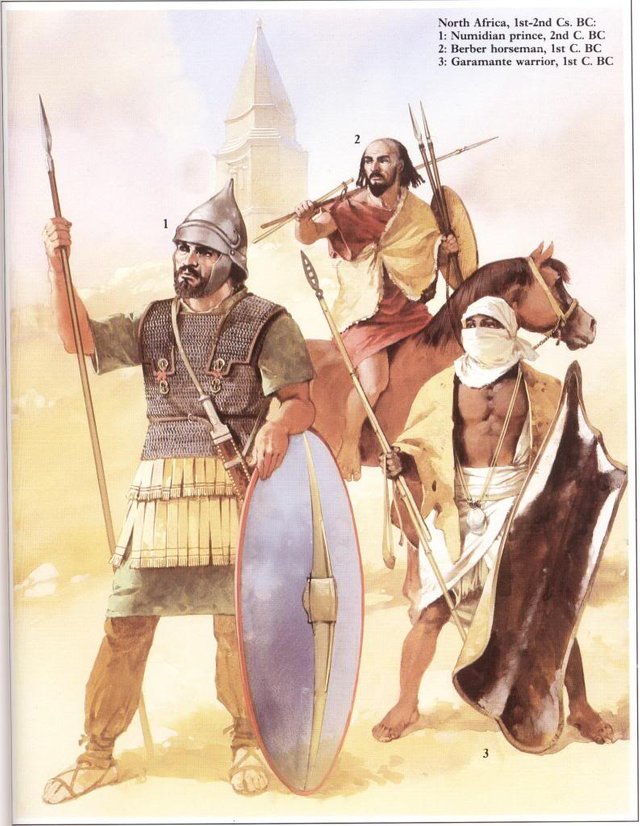
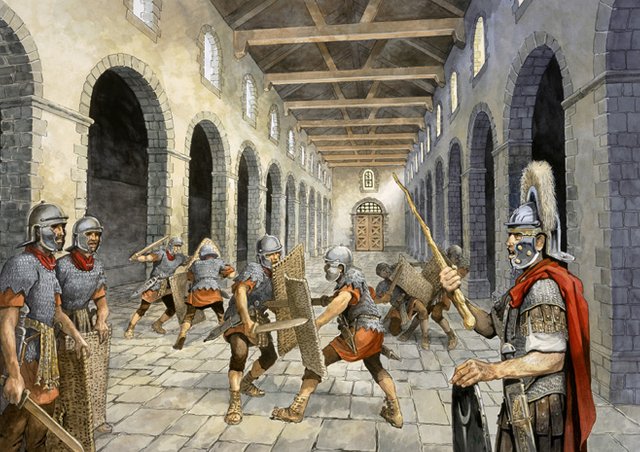
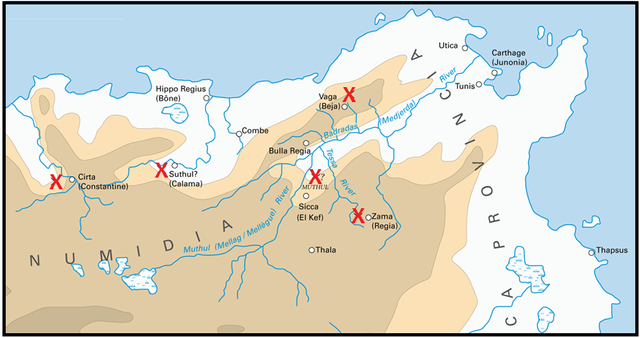
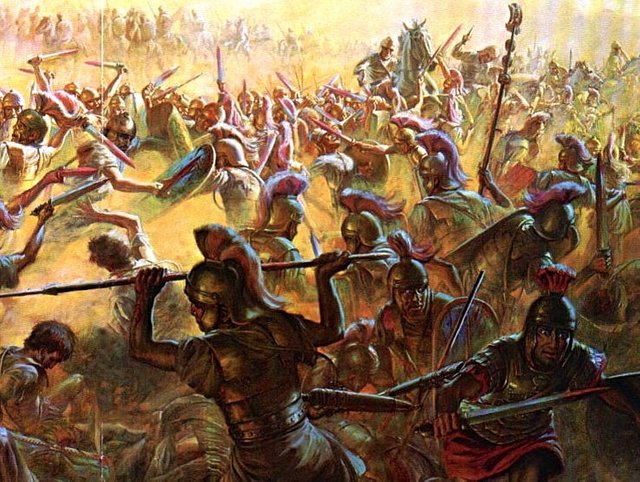
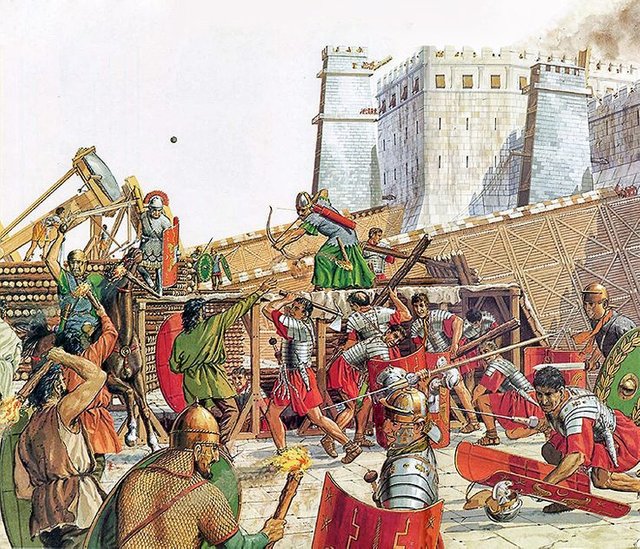
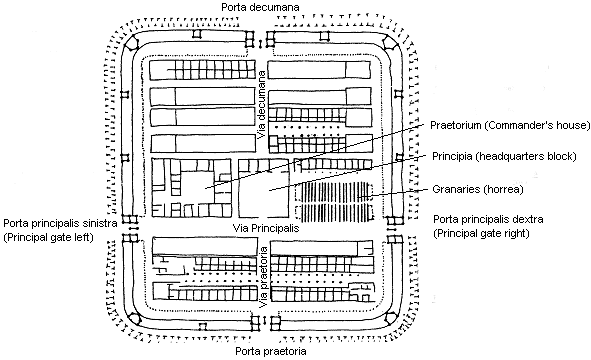
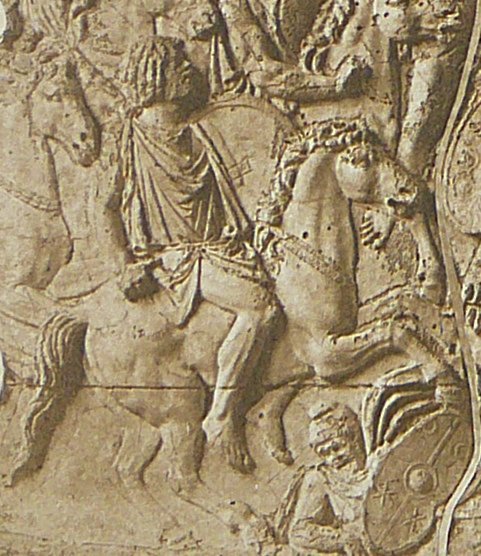
I love these military science history lessons!
Glad you enjoy it! :)